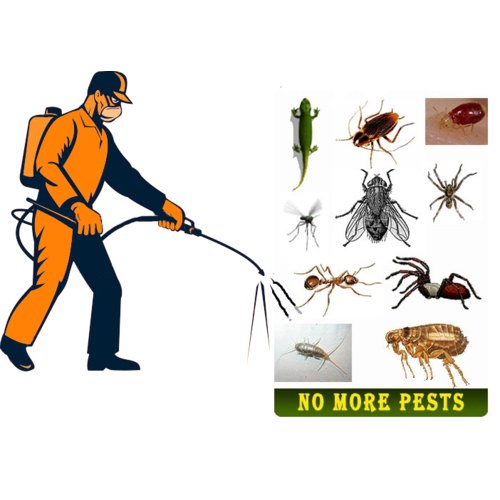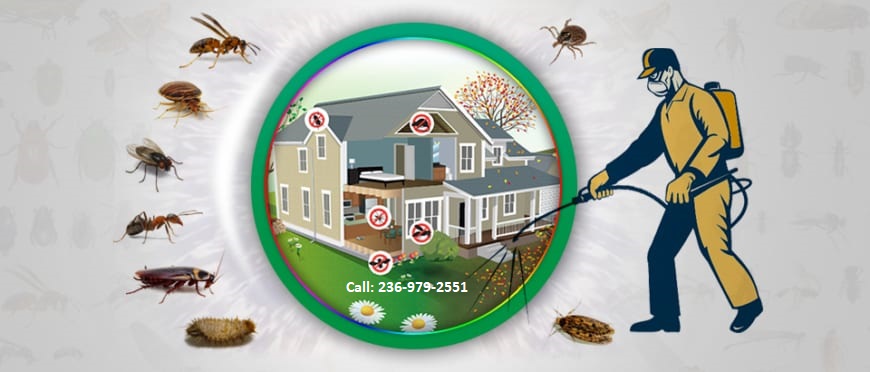Safe and Dependable Parasite Control for Lasting Protection
The value of safe and trusted insect control can not be overemphasized, specifically in an age where ecological worries are vital. Reliable pest monitoring calls for a complex technique that stabilizes environmental honesty with the requirement for efficient insect suppression. By checking out environment-friendly services and incorporated bug administration methods, property owners can accomplish enduring defense versus intrusive types while guarding helpful ecosystems. The nuances of these techniques may not be promptly clear, prompting a more detailed evaluation of the practices that can lead to lasting bug control end results. What steps can be required to ensure both safety and efficiency in parasite management?
Recognizing Bug Control Approaches
Insect control includes a range of approaches intended at managing and eliminating unwanted insects and rodents that can endanger both health and wellness and home. Recognizing these approaches is crucial for efficient parasite monitoring.
The primary categories of bug control approaches consist of mechanical, organic, and chemical strategies. Mechanical approaches entail physical obstacles and traps to stop pest entry and capture unwanted species. Making use of screens on windows or utilizing sticky traps can considerably reduce pest populaces without introducing dangerous materials - exterminator coquitlam.

Chemical parasite control is usually the most recognized technique, utilizing pesticides to remove pests. These chemicals can be effective yet should be used with care to prevent adverse results on non-target types and the setting.
Benefits of Eco-Friendly Solutions
Just how can environment-friendly options transform pest control practices? The adoption of green pest control techniques uses numerous advantages, considerably enhancing the performance and safety and security of bug management.

Another advantage is the positive influence on neighborhood biodiversity. Green services are made to target certain parasites while preserving helpful pests and wildlife, advertising a balanced ecological community. This strategy lines up with the expanding consumer need for sustainable methods, enhancing the reputation of insect control companies.
Integrated Insect Administration Techniques
The application of green options normally leads to the fostering of Integrated Parasite Monitoring (IPM) approaches, which better enhance insect control efficiency. IPM is an all natural technique that combines multiple tactics to take care of pest populations while decreasing ecological effect. This strategy stresses using organic, social, mechanical, and chemical controls, making sure a lasting and balanced approach of bug monitoring.
One basic element of IPM is the comprehensive assessment of bug task and ecological problems. By monitoring bug populations and recognizing their life process, professionals can implement targeted interventions that interfere with the insect's environment or lifecycle, minimizing reliance on chemical pesticides. In addition, cultural techniques such as crop turning and environment manipulation can substantially decrease bug facility and recreation.
One more essential element is using organic control agents, such as beneficial insects or microbes, which can naturally reduce pest populations. When chemical applications are needed, IPM prioritizes using low-risk pesticides and uses them selectively, minimizing direct exposure to non-target organisms and humans.
Incorporating IPM techniques not just boosts insect control efficiency however also advertises a more secure ecosystem, straightening with the expanding demand for sustainable methods in bug administration.
Safe Practices for Homeowners
Comprehending the value of safe methods in bug control can wasp pest control encourage home owners to effectively handle bug concerns while protecting their health and wellness and the environment. Implementing safe approaches and safety nets is critical in decreasing exposure to dangerous chemicals.
House owners ought to first analyze their setting for problems that attract parasites, such as standing food, mess, and water waste. Regularly cleaning and sealing access points can discourage insects from attacking the home. Utilizing natural deterrents, such as essential oils or diatomaceous planet, can provide efficient options to chemical pesticides.
When chemical treatments are essential, homeowners need to choose for items that are especially labeled as secure for residential use. It is important to follow application standards meticulously to stay clear of overexposure. Moreover, utilizing targeted therapies in locations where bugs are identified, as opposed to covering splashing, can considerably decrease chemical usage.
Lastly, keeping open communication with parasite control professionals is important. Home owners ought to make inquiries concerning the security of products utilized and demand environmentally friendly options whenever feasible. By embracing these secure methods, home owners can produce a healthier living atmosphere while successfully handling insect concerns.

Tips for Long-Term Security
Developing an insect monitoring technique that highlights long-term security can greatly improve the efficiency of the safe techniques previously discussed. To accomplish this, home owners must carry out routine evaluations of their view it residential property, focusing on concealed areas such as attic rooms, cellars, and crawl areas. Early detection of bug task is important in preventing invasions from taking hold.
Additionally, maintaining a tidy environment is vital. This includes proper food storage space, quickly cleaning up spills, and regularly disposing of waste. These practices minimize attractants that attract bugs right into the home. Additionally, sealing entry points, such as cracks around doors and windows, can successfully obstruct possible parasite access.
Landscape design should likewise be thought about; maintaining plants cut and preserving a range between vegetation and the home minimizes concealing places for bugs. Making use of natural deterrents, such as vital oils or diatomaceous earth, can better inhibit infestations without turning to harsh chemicals.
Finally, teaming up with a specialist bug control service for periodic evaluations can give an additional layer of protection. These experts can provide tailored recommendations and progressed therapies, guaranteeing that your home stays shielded against parasites in the long-term.
Final Thought
To conclude, risk-free and trustworthy pest control calls for a diverse approach that highlights green methods and incorporated parasite administration. By implementing all-natural deterrents, performing normal inspections, and preserving appropriate cleanliness, homeowner can significantly minimize insect populaces while safeguarding beneficial insects and the setting. Collaboration with expert parasite control solutions enhances the performance of these techniques, making sure customized options that supply long lasting protection and assurance versus future invasions.
Reliable pest monitoring needs a multifaceted strategy that balances ecological honesty with the requirement for efficient insect suppression. The fostering termite insecticide of eco-friendly bug control approaches supplies various benefits, substantially enhancing the effectiveness and safety and security of parasite management.The implementation of eco-friendly options normally leads to the adoption of Integrated Insect Management (IPM) methods, which further boost bug control efficiency. exterminator coquitlam. By monitoring bug populaces and recognizing their life cycles, specialists can execute targeted treatments that disrupt the insect's environment or lifecycle, lowering reliance on chemical pesticides.In conclusion, reputable and secure pest control requires a complex approach that emphasizes environment-friendly methods and incorporated pest monitoring